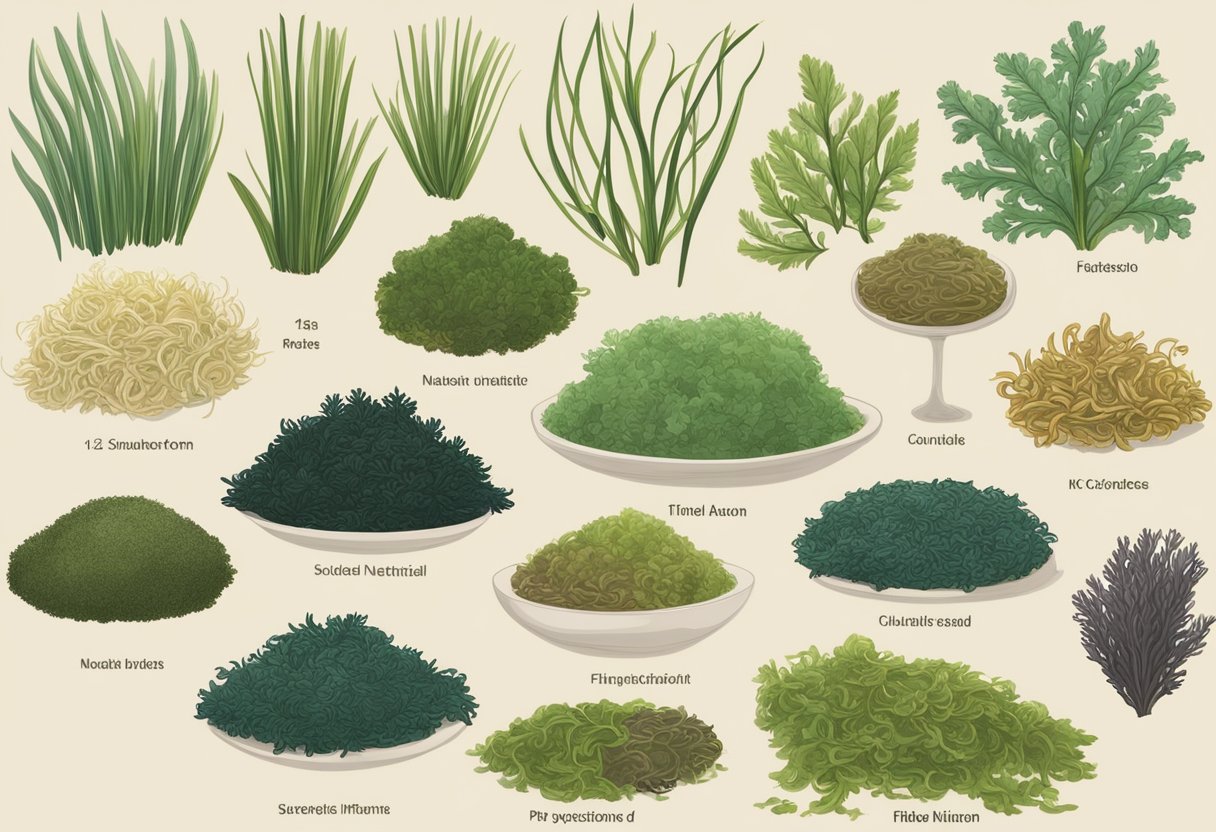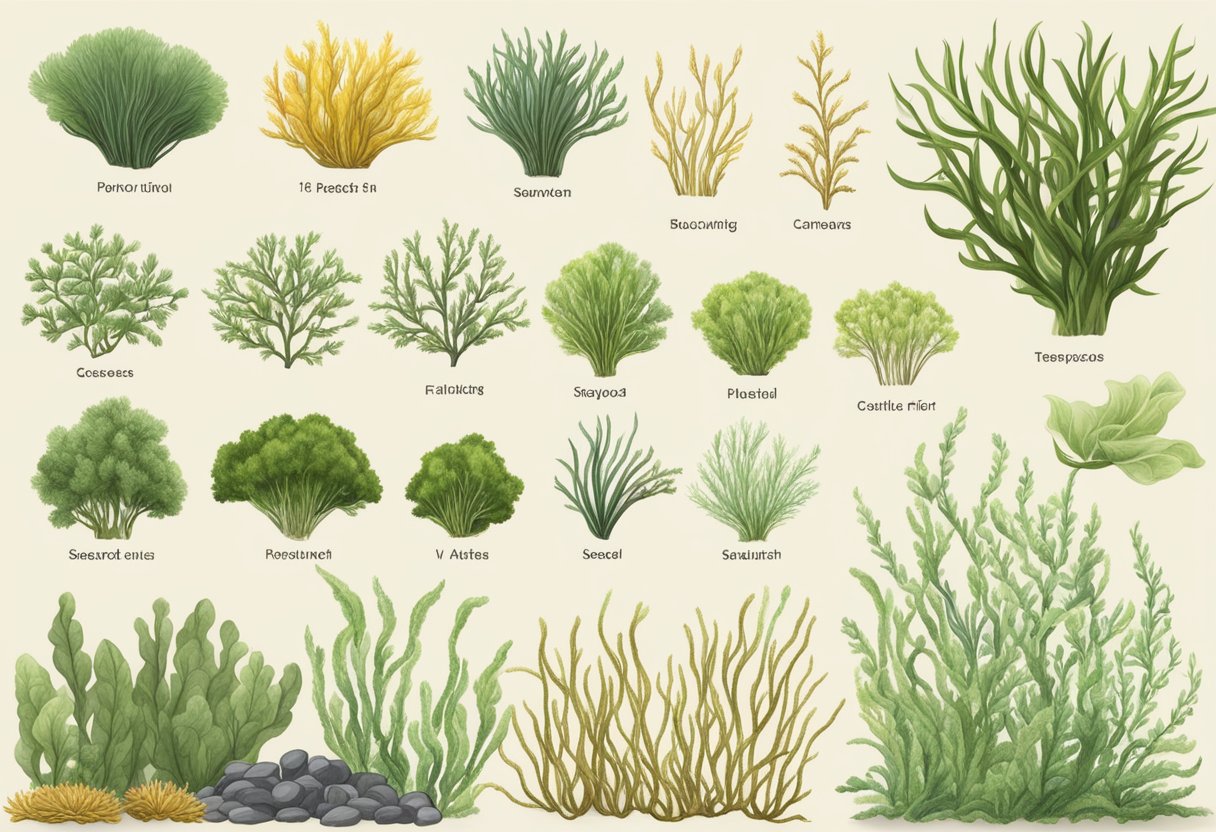Seaweed, a term commonly used to describe numerous species of marine algae and plants, has been a staple in various diets around the world, particularly in Asia. Its popularity in cuisines is not just due to its unique flavor and versatility in dishes, but also because of its nutritional properties. One of the questions that arise when discussing the nutritional value of seaweed is its fiber content. Fiber is a vital component of a healthy diet, essential for digestive health, and it can play a significant role in weight management and controlling blood sugar levels.

Understanding the fiber content in seaweed involves looking at the specific types of seaweed and their composition. Different varieties, such as nori, kelp, and wakame, have their own unique profiles when it comes to nutrient content, including fiber. While all seaweed contains some level of dietary fiber, the amount can vary widely between types. It's also important to compare seaweed's fiber content with other sources of fiber commonly found in fruits, vegetables, grains, and legumes to provide context on where seaweed stands as a fiber source.
Key Takeaways
- Seaweed is recognized for its unique flavor and nutritional benefits, including being a source of fiber.
- The fiber content in seaweed varies depending on the type, with different species having distinct nutritional profiles.
- Comparing seaweed to other high-fiber foods can help gauge its relative contribution to dietary fiber intake.
Nutritional Composition of Seaweed

Seaweed is rich in dietary fiber, contains a diverse profile of vitamins and minerals, and offers a low-caloric value with various macronutrients.
Overview of Vitamins and Minerals
Seaweed is a significant source of several vitamins including vitamin C, vitamin A, and vitamin K. It also provides a rich supply of minerals such as iodine, magnesium, and calcium. Below is a list of common vitamins and minerals found in seaweed:
- Vitamins: Vitamin C, Vitamin A, Vitamin K, Vitamin E, B Vitamins
- Minerals: Iodine, Magnesium, Calcium, Iron, Zinc
Caloric Content and Macronutrients
The caloric content of seaweed is generally low, but it is a good source of macronutrients like carbohydrates, proteins, and fats. A detailed breakdown of these macronutrients in an average serving of seaweed is as follows:
| Macronutrient | Amount per serving |
|---|---|
| Carbohydrates | 9 grams |
| Protein | 2 grams |
| Fats | 0.3 grams |
Carbohydrates found in seaweed are predominantly dietary fiber, which contributes to digestive health. The protein in seaweed, although present in smaller amounts compared to other food sources, contains essential amino acids. The fat content is minimal and mostly consists of healthy polyunsaturated fatty acids.
Fiber Content in Seaweed

Seaweed boasts a significant amount of fiber, which varies among the different types. This dietary component contributes to several health benefits.
Types of Fiber in Seaweed
Seaweed is predominantly composed of soluble fiber, particularly alginates and fucoidans. These substances swell in the presence of water, forming a gel-like consistency in the gut. Agar and carrageenan are also common soluble fibers derived from seaweed, used in food processing for their gelling properties. Seaweed contains small amounts of insoluble fiber as well, which aids in digestion and bowel health by adding bulk to stools.
Benefits of Seaweed Fiber
The soluble fiber found in seaweed can have multiple health benefits. It can enhance gut health by promoting the growth of healthy gut bacteria and may contribute to better blood sugar control by slowing digestion and sugar absorption. The viscous nature of seaweed fiber also helps to lower cholesterol levels by binding with bile acids and removing them from the body. These attributes make seaweed fiber beneficial for heart health and may aid in weight management by increasing feelings of fullness.
Comparison With Other Fiber Sources

Seaweed is often overlooked as a fiber source, but when compared to traditional fiber-rich foods, it holds its own quite well. These comparisons shed light on its fiber content and potential dietary benefits.
Seaweed vs. Terrestrial Plants
Seaweed: Aquatic plants, rich in soluble fiber, vary widely in fiber content between species.
Terrestrial Plants: Commonly consumed for their fiber, such as fruits, vegetables, legumes, and whole grains.
-
Legumes:
- Lentils: up to 15.6g per cup (cooked)
- Black beans: up to 15g per cup (cooked)
-
Whole Grains:
- Barley: 6g per cup (cooked)
- Quinoa: 5g per cup (cooked)
-
Vegetables:
- Broccoli: 5g per cup (chopped)
- Brussels sprouts: 4g per cup (cooked)
-
Seaweed (specific examples):
- Wakame: 0.5g per tablespoon (dried)
- Kombu: 2.4g per tablespoon (dried)
The fiber in seaweed mainly consists of soluble fiber, which is known for its ability to absorb water and turn into a gel during digestion. This is different from many terrestrial plants that often have a mix of both soluble and insoluble fiber.
Seaweed in the Human Diet
Seaweed is consumed in a variety of diets worldwide, particularly in Asian cuisines. Its inclusion in the diet stems not only from its flavor profile but also its nutrient density, including its fiber content.
-
Dietary Incorporation:
- Asian Cuisines: Commonly found in Japanese, Korean, and Chinese dishes.
- Western Uses: Emerging as an ingredient in snacks, supplements, and as a salt substitute.
When looking at the average diet, seaweed's contribution to total fiber intake can be significant, especially in cultures that traditionally consume large amounts of it. It can be a useful complement to dietary fiber sources, especially considering the varying types of fiber that different foods offer.
Frequently Asked Questions

Seaweed is a term used to describe countless species of marine plants and algae that grow in oceans, rivers, and lakes. The inclusion of seaweed in diets has been found to offer a variety of health benefits, often due to its high mineral content and dietary fiber.
How does seaweed impact weight management and weight loss?
Seaweed contains a high amount of dietary fiber which can help individuals feel full longer, potentially leading to reduced overall calorie intake. Some studies suggest that alginate, a natural fiber found in some seaweeds, may reduce fat digestion and absorption.
Can consuming seaweed daily contribute to improved gut health?
The fiber in seaweed, such as that from the polysaccharides in many kinds of seaweed, is known to support gut health by promoting the growth of beneficial gut bacteria. These fibers can act as prebiotics and contribute to a healthier gut microbiome.
What are the nutritional benefits of including seaweed in the diet?
Seaweed is rich in vitamins and minerals such as vitamin K, iodine, calcium, and magnesium. The fiber content in seaweed helps in digestion and the overall balance of the diet, making it a nutritious addition to a healthy eating plan.
How does the fiber content in seaweed compare to other vegetables?
The fiber content in seaweed can be quite high and compares favorably to land-based vegetables. However, the actual fiber content varies among different types of seaweed. Generally, seaweed tends to have higher levels of soluble fiber.
What are the benefits and possible adverse effects of regularly eating seaweed?
Regular consumption of seaweed may contribute to improved cardiovascular health, regulated digestion, and enhanced immune function due to its fiber and nutrient content. However, excessive intake could lead to an overconsumption of iodine and potential interactions with certain medications. It is essential to consume seaweed in moderation.
